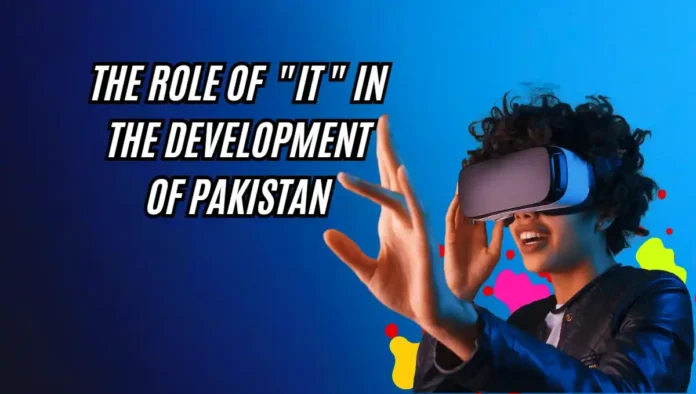The role of IT in the development of Pakistan has brought revolutionary changes to various fields of life, including education, healthcare, business, and governance. The significance of IT in developing countries like Pakistan is immense, particularly in terms of economic growth, poverty reduction, and social empowerment. This essay aims to explore the role of IT in the development of Pakistan, with a focus on web 3.0, which is the latest stage of the World Wide Web. The essay will utilize various forms of discourse, including exposition, argumentation, description, and narration, to provide a comprehensive overview of the topic.
IT has been a game-changer for Pakistan, transforming the way people live, work, and communicate. In recent years, the country has made significant progress in the IT sector, with the government taking various initiatives to promote the use of technology. For instance, the establishment of the Ministry of Information Technology and Telecommunication has led to the development of policies and programs that aim to enhance the IT infrastructure and facilitate the growth of IT-related industries. One of the most significant developments in the IT sector is the emergence of web 3.0, which is the next stage of the World Wide Web. Unlike its predecessors, web 1.0 and web 2.0, which mainly focused on static content and user-generated content, respectively, web 3.0 aims to create a semantic web that is capable of understanding and interpreting human language. This development has far-reaching implications for various industries and sectors in Pakistan, as it can lead to the creation of more intelligent and efficient systems.
The use of web 3.0 in various industries can significantly contribute to the economic growth of Pakistan. For instance, the adoption of web 3.0 in the healthcare sector can lead to the development of more sophisticated diagnostic and treatment systems, which can improve the quality of healthcare services in the country. Similarly, the use of web 3.0 in the education sector can lead to the creation of more personalized and interactive learning environments that cater to the needs of individual students, thus improving the overall educational outcomes in Pakistan. Furthermore, web 3.0 can also facilitate the growth of e-commerce and online businesses in Pakistan. The semantic web can create more intelligent and personalized shopping experiences for consumers, which can lead to increased sales and revenue for online businesses. This can also create employment opportunities in the IT and e-commerce sectors, thus contributing to poverty reduction and social empowerment.
The development of web 3.0 in Pakistan requires a robust IT infrastructure and a skilled workforce. The government has taken several initiatives to address these challenges, such as the establishment of IT parks and incubators that provide space and resources for IT-related start-ups. Furthermore, the government has also launched various training programs to enhance the skills of IT professionals in Pakistan.
Despite these efforts, there are still challenges that need to be addressed to fully realize the potential of web 3.0 in Pakistan. For instance, there is a lack of awareness and understanding of web 3.0 among the general population, which can hinder the adoption of the technology. There is also a digital divide between urban and rural areas, with the latter having limited access to the internet and other IT-related resources.
There are several success stories of web 3.0 adoption in Pakistan that demonstrate its potential in transforming various industries. For instance, the Pakistani start-up, Cowlar, has developed a smart collar for cows that uses web 3.0 technology to track the health and behaviour of the animals. This has led to a significant increase in milk production and improved the livelihoods of farmers.
Another example is the use of web 3.0 in the financial sector, where various start-ups have developed block chain-based platforms for secure and efficient financial transactions. One such start-up is Telenor Microfinance Bank, which has launched a block chain-based cross-border remittance service that enables Pakistanis living abroad to send money to their loved ones in Pakistan instantly and securely.
Conclusion
The role of IT in the development of Pakistan, particularly web 3.0, in the development of Pakistan is significant, with the potential to transform various industries and contribute to economic growth, poverty reduction, and social empowerment. However, there are still challenges that need to be addressed, such as the lack of awareness and digital divide, to fully realize the potential of web 3.0 in Pakistan. The government, private sector, and civil society need to work together to overcome these challenges and create a more inclusive and technology-driven society in Pakistan.
